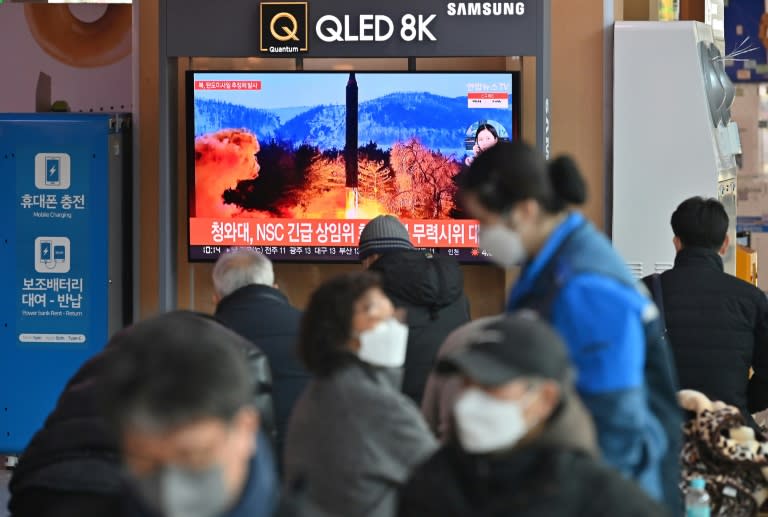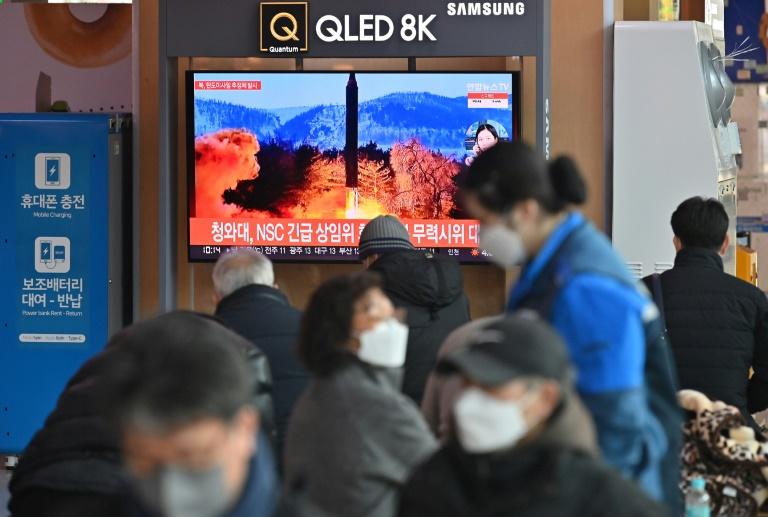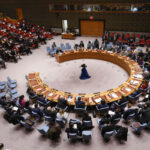
North Korea said it had carried out a test of “great significance” for developing a reconnaissance satellite, state media reported Monday, a day after Seoul said it had detected a ballistic missile launch.
Despite sweeping international sanctions, Pyongyang carried out a record-breaking blitz of weapons tests in January before pausing launches during the Beijing Winter Olympics.
On Sunday South Korea’s military said it had detected the launch of a ballistic missile, with Yonhap later reporting it could have been fired from a mobile launcher at a steep angle, possibly indicating a medium-range ballistic missile.
But North Korea’s official Korean Central News Agency (KCNA) said government agencies had conducted a test “of great significance in developing the reconnaissance satellite” on Sunday.
KCNA said the test helped “confirm the characteristics and working accuracy of high definition photographing system, data transmission system and attitude control devices”.
That included “conducting vertical and oblique photographing of a specific area on earth with cameras to be loaded on the reconnaissance satellite,” KCNA added.
Rodong Sinmun, the official newspaper of North Korea’s ruling Workers’ Party, carried two photographs that appeared to show the Korean peninsula seen from space.
The development of a military reconnaissance satellite — along with the recently tested hypersonic weapons — is one of the key defence projects listed by leader Kim Jong Un last year.
Analysts say developing such a satellite would provide the North with cover for testing banned intercontinental ballistic missiles (ICBMs), as long-range rockets share the same technology.
– Satellite or missile? –
“North Korea has long been suspected of using space launches as a cover for tests of rockets to be used as ballistic missiles,” analyst Joshua H. Pollack wrote on Twitter.
“Space launches may offer Kim Jong Un a lawyerly way around his April 2018 pledge to ‘suspend’ ICBM testing,” said Pollack, a senior research associate at the Middlebury Institute of International Studies.
Pyongyang has been abiding by a self-imposed moratorium on testing ICBMs and nuclear weapons since leader Kim Jong Un embarked on a flurry of high-profile diplomatic engagement with then US president Donald Trump in 2017.
Talks later collapsed and diplomacy has languished ever since, with Pyongyang ignoring US offers of talks while doubling down on its military modernisation programme and hinting it could restart long-range testing.
“North Korea has previously claimed that satellites and ICBMs are the same inside and outside,” said Yang Moo-jin, a professor at the University of North Korean Studies in Seoul.
“The intention is to pressure the US as a step before the moratorium is scrapped,” he said of the Sunday test, adding the North may carry out a satellite test in April to celebrate a key domestic anniversary.
North Korea will mark the 110th anniversary of the birth of late founder Kim Il Sung in April.
Recent satellite images suggest that the North may be preparing a military parade to showcase its weapons for the anniversary.
Analysts had widely predicted Pyongyang would seek to capitalise on US distraction over Russia’s Thursday invasion of Ukraine with new tests.
bfm-sh/ceb/reb




